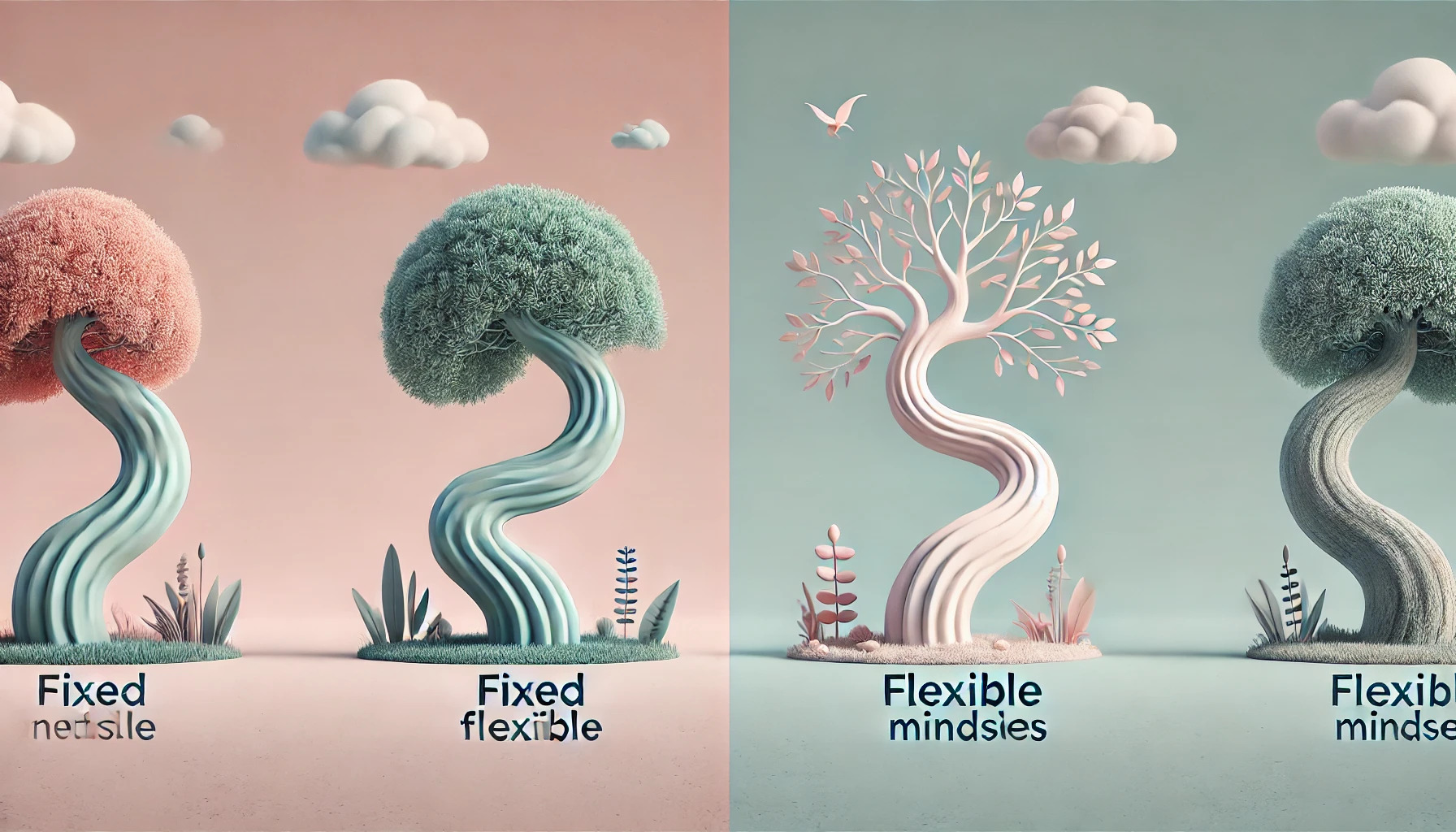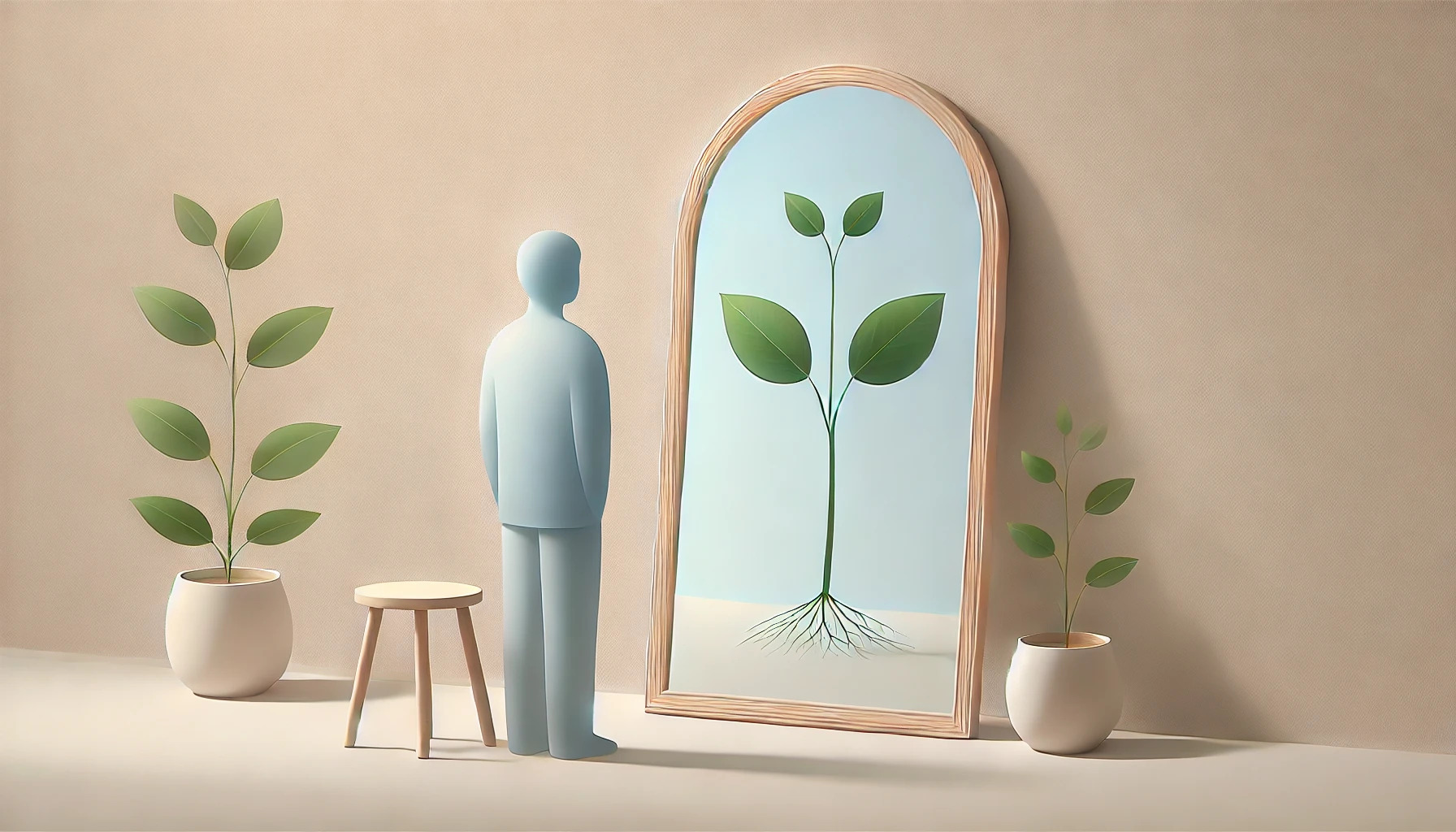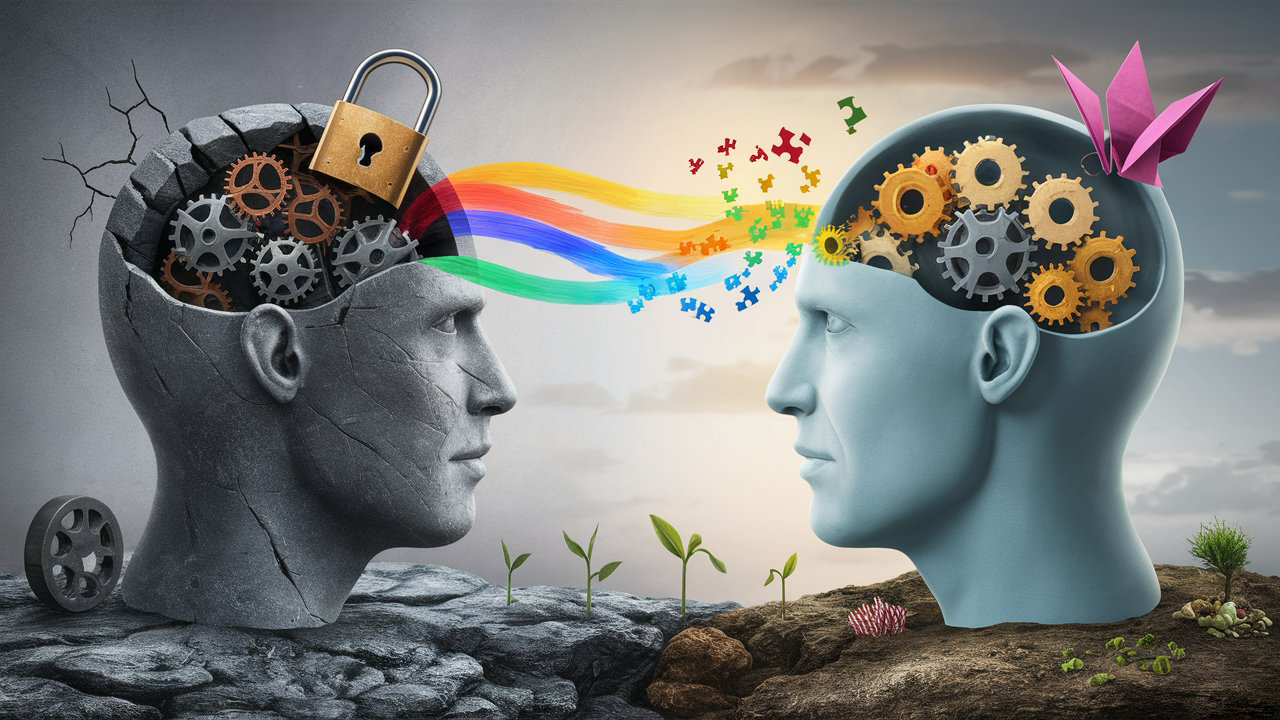Introduction
In the journey of life, one of the most significant attributes a person can cultivate is a flexible mindset. The ability to adapt, accept, and adjust to different circumstances not only enriches our personal experiences but also enhances our relationships with others. Param Gurudev’s insights into the nature of fixed and flexible mindsets offer profound wisdom for those seeking inner peace and resilience.
Understanding Fixed vs. Flexible Mindsets

A fixed mindset can be likened to a rigid structure, resistant to change and often causing friction when faced with unexpected situations. This rigidity can manifest in various forms, such as an unwillingness to consider new perspectives, a tendency to hold onto preconceived notions, or an inflexibility in adjusting plans. While having a set of beliefs and principles is important, it’s equally crucial to remain open to the evolving nature of life and the world around us.
A flexible mindset, on the other hand, is characterised by openness, adaptability, and a willingness to embrace change. It involves understanding that our beliefs and perspectives are not infallible and that growth often comes from challenging our own assumptions. This mindset allows us to navigate life’s ups and downs with grace, finding solutions where others see obstacles.
The Power of Acceptance

One of the key aspects of developing a flexible mindset is acceptance. Acceptance does not mean resignation or passivity; rather, it is an active process of recognizing reality and responding appropriately. It involves acknowledging that certain situations are beyond our control and that resisting them only leads to unnecessary stress and conflict. By accepting what we cannot change, we free ourselves to focus on what we can influence and improve.
Acceptance is not merely a passive state but an active process of engagement with reality. When we resist change or refuse to accept situations, we create unnecessary friction in our lives. This resistance can manifest as stress, anxiety, and a sense of being overwhelmed. On the other hand, acceptance allows us to move forward with clarity and purpose, focusing our energy on actions that can lead to positive outcomes.
Empathy and Understanding

Understanding others’ perspectives is another cornerstone of flexibility. Every individual comes with their own set of experiences, beliefs, and values. When we rigidly cling to our viewpoint without attempting to understand others, we create barriers to effective communication and relationship-building. Empathy and active listening are powerful tools in bridging these gaps. By making an effort to see the world through others’ eyes, we can foster deeper connections and resolve conflicts more effectively.
Empathy involves putting ourselves in others’ shoes and experiencing their emotions and thoughts. This practice can significantly enhance our relationships, as it fosters mutual respect and understanding. When we are empathetic, we are more likely to respond with compassion and patience, which are essential for maintaining healthy and meaningful connections.
The Consequences of Inflexibility

A common source of internal and external conflict is the inability to adapt to changing circumstances. Whether it’s a shift in a relationship, a new job, or an unforeseen event, our response to change can significantly impact our well-being. Clinging to the familiar may offer temporary comfort, but it often hinders our growth and potential. Embracing change with a positive attitude and a willingness to learn can turn challenges into opportunities for development.
Rigid mindsets can also lead to anger and resentment. When we are unable to accept the reality of a situation or the behaviour of others, we create internal friction. This internal conflict often manifests as anger, which can damage our relationships and mental peace. By remaining flexible and accepting, we can mitigate these negative emotions and foster a more harmonious life.
Anger and Resentment from Rigidity

Rigid mindsets can lead to anger and resentment. When we are unable to accept the reality of a situation or the behaviour of others, we create internal friction. This internal conflict often manifests as anger, which can damage our relationships and mental peace. By remaining flexible and accepting, we can mitigate these negative emotions and foster a more harmonious life.
Anger often arises from unmet expectations and the inability to control situations. When we hold rigid beliefs and expectations, any deviation from these can trigger frustration and anger. By cultivating flexibility, we learn to adapt our expectations and reduce the occurrence of these negative emotions. This shift not only benefits our mental health but also improves our interactions with others.
Self-Reflection and Growth

Reflecting on our own beliefs and behaviours is essential for cultivating a flexible mindset. It requires an honest assessment of where we may be holding onto rigid patterns that no longer serve us. This self-awareness is the first step toward making meaningful changes. By recognizing the areas where we are inflexible, we can consciously work towards adopting a more open and adaptive approach.
Self-reflection involves regularly assessing our thoughts, beliefs, and actions. This practice helps us identify areas where we might be stuck in rigid patterns and provides opportunities for growth. By embracing self-reflection, we can make intentional changes that align with our goals and values, leading to a more fulfilling and adaptable life.
Practical Applications of Flexibility
The teachings of Param Gurudev are not just theoretical; they have practical applications in our daily lives. For instance, in professional settings, a flexible mindset can lead to better problem-solving and innovation. In personal relationships, it can foster deeper understanding and connection. By applying these principles, we can navigate life’s complexities with greater ease.
In the workplace, flexibility allows us to adapt to changing demands and collaborate effectively with diverse teams. It encourages innovation and creativity, as we are open to exploring new ideas and approaches. In our personal lives, flexibility helps us build stronger relationships by fostering empathy and understanding. It enables us to navigate conflicts and differences with grace, leading to more harmonious interactions.
The Role of Continuous Learning
To encourage flexible thinking, it is essential to challenge our assumptions regularly. This can be done through continuous learning, seeking out new experiences, and being open to feedback. Surrounding ourselves with diverse perspectives and being willing to step out of our comfort zones can also help in developing a more adaptable mindset.
Continuous learning involves actively seeking knowledge and experiences that challenge our existing beliefs. This practice helps us stay open-minded and adaptable, as we are constantly exposed to new ideas and perspectives. By embracing continuous learning, we can cultivate a flexible mindset that is resilient in the face of change.
Enhancing Interpersonal Relationships
Flexible thinking significantly enhances interpersonal relationships. When we are open to changing our perspectives and understanding others, we build stronger connections. This openness allows us to communicate more effectively, resolve conflicts amicably, and support each other’s growth.
In relationships, flexibility helps us navigate differences and conflicts with empathy and understanding. It allows us to see things from our partner’s perspective and respond with compassion. This approach fosters trust and mutual respect, which are essential for healthy and lasting relationships.
Conclusion
A flexible mindset is a vital asset in our personal and professional lives. It allows us to adapt to changing circumstances, understand others more deeply, and approach challenges with a positive and proactive attitude. By cultivating flexibility, we open ourselves up to a richer, more fulfilling life, marked by resilience and inner peace.





